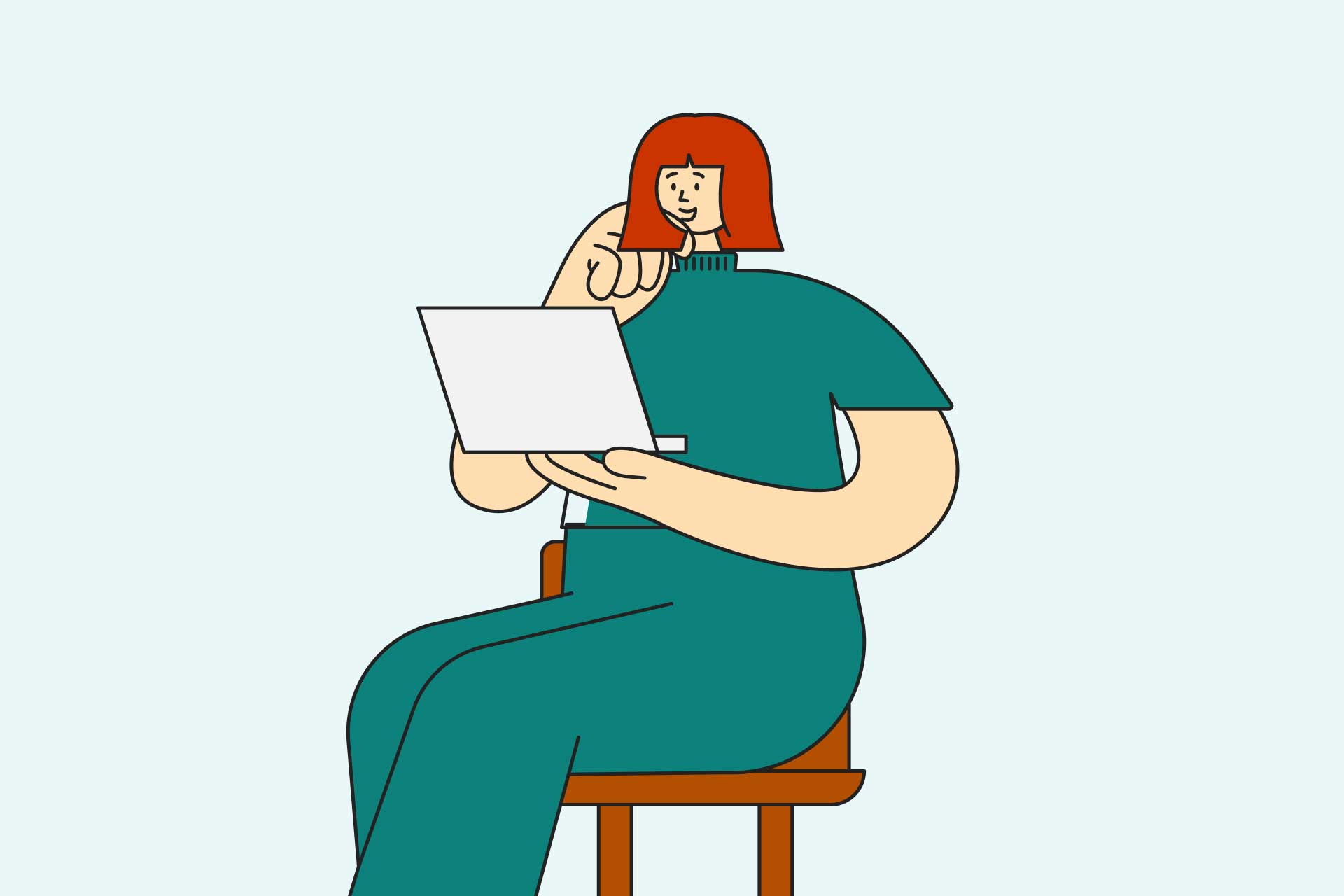Making a Career Change at 30: What You Should Know
Making a career change at 30 (or any age) can be daunting, especially if you don’t have experience in the job you’re interested in. But Paulo Saromo has done it; he made the leap from cook to freelance copywriter. In this post, he shares the insights he gained from the experience.

If you’re looking to make a career change at 30 or any age, you’re not alone.
As of this writing, the headlines are filled with stories about The Great Resignation of 2021. Depending on which survey you look at, the percentage of employees who want to resign ranges anywhere from 25%, 41%, 50%, to a whopping 95%.
The only constant thing in life is change.
– Heraclitus
Making a career change at 30 can be one of the most anxiety-inducing professional decisions we can make, but it doesn’t have to be. We face change every single day of our lives. This might be a small change, like a change in the weather or a change in the menu of your favourite restaurant. This could also be a large change, like a change in your work environment or a change in your relationship status.

Working with a great mentor can help you make a career change at 30, 40, or any age.
Making a career change at 30 is a big decision
So don’t worry if you’re an adult and looking at changing your career right now. This can happen in your 30s, 40s, even 50s. This is completely normal.
Albeit, things are a bit more nuanced now that you’re changing your career at 30. It’s not as straightforward as choosing a path when you left high school, and we need to take that into account.
Here are some things to ponder:
1. New career vs. a new job
Do you really need to change your career? Or do you just need to find yourself a new job?
Take a really good look at this. A lot of the time people end up in toxic work environments and that ruins the job for them. They might think that they need to change careers when they really only need to find a new job.
Do you still enjoy the type of work you’re doing? If so, then maybe you just need to find a new job. But if you’re feeling apathetic towards your work, then a career change might be for you.
2. Your schedule and family life

The desire for a career change at 30 may be fueled by the desire for better work-life balance. (Photo by Ketut Subiyanto).
At 30, you’re not the same as you were when you were 20. You may not have as much time to put into changing your career as you had before because you’ve got more obligations now. Maybe you now have a family that you need to consider before making this decision.
With that said, it’s also possible that you’re considering a career change because you want to have more time for your family. One of the top reasons for The Great Resignation, the Catalyst report found, is the desire for more flexibility.
“People are really leaning into flexibility, whether that’s flexibility by location, by when they work, or how they work. They want to leave if the employer is not providing that.”
– Lorraine Hariton, President and CEO of Catalyst
Going through the process of changing careers is going to impact not only yourself but also those around you.
3. Starting at an entry-level position
Remember the first job you got in your field? It wasn’t that glamorous, but you had to start somewhere. This goes without saying, but when you enter a new industry you’re most likely going to be starting at an entry-level position again. For those making a career change at 30, one way to get out of an entry-level job quickly is to get experience as soon as possible – more on that later.
This may also come with taking a pay cut, depending on how far along you were in your last career. Are you able to deal with things and are you willing to take these things on?
What’s your WHY?
Now, you want to have a look at exactly why you want to change careers. There are plenty of reasons one might change their career and all of them are valid. They may include:
1. You are dissatisfied with your current career

If your current job leaves you unfulfilled, then it makes sense to want a career change. (Photo by Norma Mortenson.)
Are you dissatisfied with the type of work that you do?
Do you even hate the type of work you do? Considering how much time we spend working during not only our day today but in our lifetime. If you have a constant feeling of apathy it will take its toll on you.
You don’t necessarily need to hate your work, but that can be a big factor when deciding you want to make some changes.
Maybe you’re comfortable, almost too comfortable and you need a change of pace.
Going through the motions and just getting through your days can lead to monotony with your job. As humans, the feeling of growth and progress is just as important as enjoying the work you do.
Eventually, something is going to give and you won’t be able to work anymore. If this is the case, I suggest starting your transition as soon as you know that this is something you want to do.
2. You have bills to pay
We all have bills to pay and expenses that we need to take care of. If you’re not able to cover those with your current paycheck, then it’s okay to look at a career change as a solution.
However, changing careers to make more money is a very long-term plan when it comes to your finances. Changing your career now won’t help with this immediately, but it could eventually.
3. You desire more flexibility
In a post-pandemic world, work flexibility has become huge. Do you want more time at home? Do you enjoy not having a set schedule and being able to work as you like?
If so, then working in a field that requires you to come into a designated workplace is going to be tough.
It’s not just the new normal that we’ve all (maybe) come to love that can cause this need for flexibility. Maybe for health reasons you’re unable to continue working in your chosen field for much longer. New obligations come up and you can no longer spend as much time away from home.
What are my choices when making a career change at 30?
If you’ve decided that changing your career is the right decision for you and that you can handle all the things that come along with that, then you have a few options as to how to actually do it.
Get a new degree
The traditional way of getting yourself into a new career. You go in, study, and come out at the end with a diploma, certificate, or a degree in your chosen field. As with everything there are pros and cons to doing things the traditional way.
Going to university comes with a certain degree of prestige. This is why it is attractive to go back to school. A degree looks really good on your resume and will go a long way when applying for work.
On the other hand, one of the drawbacks to getting a degree is that it’s a very expensive process. Attending school is not cheap and tuition costs keep going up.
There’s also a large time investment that goes into getting a degree. Expect to go back to school for at least a few years. If you’re going to be taking the course part-time, add a few extra on top of that.
Depending on what choice of career you’re going to get into, traditional schooling might be your only option.

Making a career change may mean having to go back to school. (Photo by Andrea Piacquadio.)
Attend a bootcamp
With the age of the internet and the growth of the tech industry, a new form of learning has been born. Attending a bootcamp is a super-condensed version of attending school. If you’re looking at the tech industry then a Bootcamp might be an appealing option to you.
Traditional schooling can take years. Bootcamps can be over in as quick as three to six months, and you can be on your way to a full-time job. There’s not nearly as much of a time commitment here.
Bootcamps are also much more affordable when compared to traditional schooling. While most Bootcamps still charge a pretty penny, when compared to taking a full four years of schooling, it’s much more affordable.
Unfortunately, you won’t be receiving a degree from a bootcamp. You walk away with a certificate instead. It fills the same role as a degree but may not be as credible to some employers as a degree.
Bootcamps are for those that don’t want to spend as much time or money and want to get working as fast as possible.
Internship or apprenticeship
If you’re going to school this might be integrated into your program already and you can do an internship for school credit. If that’s the case you might be familiar with the terms “practicum” or “CO-OP.”
Doing an internship or an apprenticeship is where you learn hands-on while working for a company or under a mentor. They take you under their wing and teach you the tools of the trade.
A platform that I’ve used to get experience is Acadium. Getting hands-on learning through an Acadium apprenticeship is free and only lasts 3 months, 10 hours a week. You can juggle it with a full-time job.
Acadium matches online business owners with aspiring digital marketers for three-month remote apprenticeships to help them launch or grow their careers in a rapidly changing job market. The apprenticeships offer accessible training for anyone to launch their careers with no prior experience.
Internships or apprenticeships give you a chance to get some real-world work experience that is crucial for those making a career change at 30. This is huge, as most employers are looking for some work experience when taking on new hires. Having a positive track record and being able to show and tell the results that you have gotten in your apprenticeship cannot be understated.
Top 5 Tips for Making a Career Change at 30 (or Any Other Age)
Changing careers at 30—or at any age—is a big deal. You don’t do it willy-nilly. To make sure you’re making a change for the better, follow these tips:
1. Do your research
Find out everything you can about the new job or career you’re interested in: the responsibilities, competencies required, prevailing salaries, growth potential, work environment, etc.
Ask yourself if the new job or career will address your reason for wanting the change. This is why you need to know your true motivations or “big why” for the switch, in the first place.
2. Assess your current competencies
Make an inventory of your skills, experience, and interests. Dig deep and take stock of everything you’ve accomplished and learned through past jobs, projects, and volunteer work. Nothing is too big or too small.
Then, compare your list to the requirements of the job you want. Identify any gaps in your competencies that may prevent you from getting into that new career.
3. Try before you leap
No matter how well you do your research into that job you’re eyeing, there’s nothing like first-hand, personal experience to determine whether it’s truly right for you.
There are several low-risk ways to “try on” a job without leaving your current one. You could volunteer, do the job as a side gig, or complete an apprenticeship. Find creative ways to dip your toes before making the leap. As you do any of those things, ask yourself how you would feel doing the job full-time.
4. Make a plan
Ok, you’ve done your due diligence and you still really want to make the change. Now, it’s time to have a plan. Break down the process into smaller steps, so you don’t get overwhelmed. And make sure to have a plan for how you will address the gaps in your competencies.
5. Prepare, prepare, prepare
We’ve already established that switching careers isn’t going to be easy. You can ease the transition by getting ready on several levels. Prepare yourself both mentally and physically because it’s going to be stressful. Prepare your finances. Do you have enough savings to tide you over in case the switch causes a temporary dip in income?
Finally, remember to talk with your loved ones and help them prepare for the change. Your schedule and lifestyle will probably change when you change careers, and they’re going to be affected. What preparations do they need to make to adapt?
You still want to make a career change at 30. Now what?
Changing careers at any point in your life can be a daunting experience. There’s a lot you need to consider, especially at the age of 30. However, doing so is not impossible and you shouldn’t feel bad about having to do this at your age.
Ready to start your career in digital marketing?
Starting your career in digital marketing can be a daunting and overwhelming journey. Don’t let that stop you from joining an industry that offers variety, excitement, and endless growth opportunities. Check out The complete guide to starting a career in digital marketing if you want to get everything you’ll need for your journey.
And when you’re ready, become a digital marketing apprentice for a great mentor. Not only will they give you the hands-on experience you need to get a job in digital marketing. They’ll also give you insights and contacts to make the transition as smooth and painless as possible.
Good luck with your career change!
This post was first published in January 2021. We’ve updated it with contributions from Lexi Rodrigo, Content Manager at Acadium.
Paulo Saromo is a Canadian based copywriter. He has over seven years of experience working in kitchens as a cook and has made the jump into copywriting and marketing.
He's living proof that you can change careers at the age of 30. With no professional training or college degree in marketing, he has been taught completely through mentors he met through Acadium. He's now a freelance copywriter doing podcast show notes, blog posts, and sales emails. Connect with Paulo on LinkedIn.
-
Career Prep
Top Marketing Webinars for Digital Marketers in 2025
By attending these webinars, you will have the opportunity to learn from industry leaders, gain insider knowledge, and stay ahead of the competition.
-
Career Prep, News
9 Types of Digital Marketing to Choose From in 2025
Digital marketing is a dynamic field that offers diverse career opportunities. From search engine optimization to social media marketing, there are many specializations to explore. Whether you're just starting out or looking to switch careers, this guide will help you find your ideal digital marketing niche.

Subscribe to our newsletter for digital marketing resources
Become a better marketer with our digital marketing resources and tips shared weekly in your inbox.

Get started with Acadium
Build your marketing career for free or find marketing talent on any budget — fully remote.

